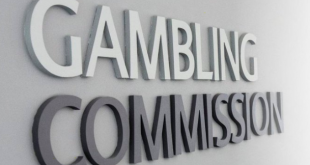The ‘substantive changes’ of the Gambling Act review White Paper can be expected to come into play ‘as we move into the new year’, UK Gambling Commision (UKGC) Director of Policy, Ian Angus.
Angus informed assembled delegates at the Lotteries Council this week that White Paper changes will likely come into effect in 2024 as responses to the UKGC and DCMS consultations on the regulatory review’s recommendations are published.
On an important note for the industry at large, this will include changes to the Licence Condition and Codes of Practice (LCCP), an expected outcome. Meanwhile, unresolved consultations will continue to progress as changes are adopted.
The UKGC is currently engaged in consultations on four core areas – financial vulnerability checks and financial risk assessment, removing features which increase intensity of play on non-slots casino games online, age verification in venues, and improving consumer choice on direct marketing and cross-selling.
Following this, the next tranche of consultations will focus on socially responsible initiatives, such as ensuring bonuses and free bets to not exacerbate harm; gambling management tools, notably whether to make online deposit limits mandatory or opt-out rather than opt-in; and regulatory returns, such as removing a ‘number of items that are out of date or not useful’.
This round will be published in the winter, he outlined, whilst the research, education and treatment (RET) levy will also be subject to industry and stakeholder engagement – something which RET figures such as Ygam CEO Dr Jane Rigbye has recently called for greater clarity on.
What Angus did make clear is that the levy will have to come into force through secondary legislation. As such, the DCMS is taking a key role in consultations on this area, one of the most significant recommendations of the review.
Angus elaborated: “Whilst we’re on the levy, we are expecting DCMS to launch their consultation on the levy soon, which will be your chance to make your case. Our advice to the government on the levy will also be published.”
However, whilst some ‘substantive changes’ are due to come into force next year, Angus informed the Lotteries Council that changes to the LCCP will take longer and will be subject to yet even more consultations.
“Now we do have to consult before we make any changes to that document which is why there will be a number of consultation windows over the next couple of years,” he said.
Lastly, on the creation of an ombudsman – a White Paper recommendation that was broadly welcomed by industry, RET and reform stakeholders – Angus reiterated a previously held UKGC standard.
As the industry itself has been tasked with the creation of this body, the form and agenda of the ombudsman will only be approved by DCMS and the UKGC if certain standards of its design are met.
“Only when we and DCMS are satisfied with its scope and independence, will we explore how best to make sure that customers of all licensees have access to it,” Angus asserted.
Lastly, the UKGC’s policy chief also touched on how the Commission plans to overhaul data collection and survey practices. This has also previously been highlighted as a key priority both for the regulator and for policymakers.
Speaking before MPs last month, DCMS Secretary Stuart Andrew identified an urgent need for the UK to improve its research capabilities around gambling harm, and UKGC CEO Andrwe Rhodes also noted the limitations of existing methods.
Building on this, Angus explained that the use of the quarterly telephone survey and NHS’ Health Survey Data from 2018 have been useful, but have their limitations. The UKGC is now setting out to create a new ‘gold standard for collection of data’, he said.
“This will be the largest survey of its type into prevalence and participation of gambling anywhere in the world, with 20,000 responses a year when it is fully up and running.
“This will give us more accurate and up to date information, leading to better regulation across the sector. We are currently in fieldwork and will start publishing new data in the spring of next year.”
The first round of consultations are due to end next week on 18 October, and should the UKGC and DCMS keep momentum on the following tranche, the UK may well be underway to see regulatory changes adopted next year, as set out under the White Paper’s initial time frame.
The only factor to consider is whether or not a general election, which can be held no later than January 2025, could impact this…










